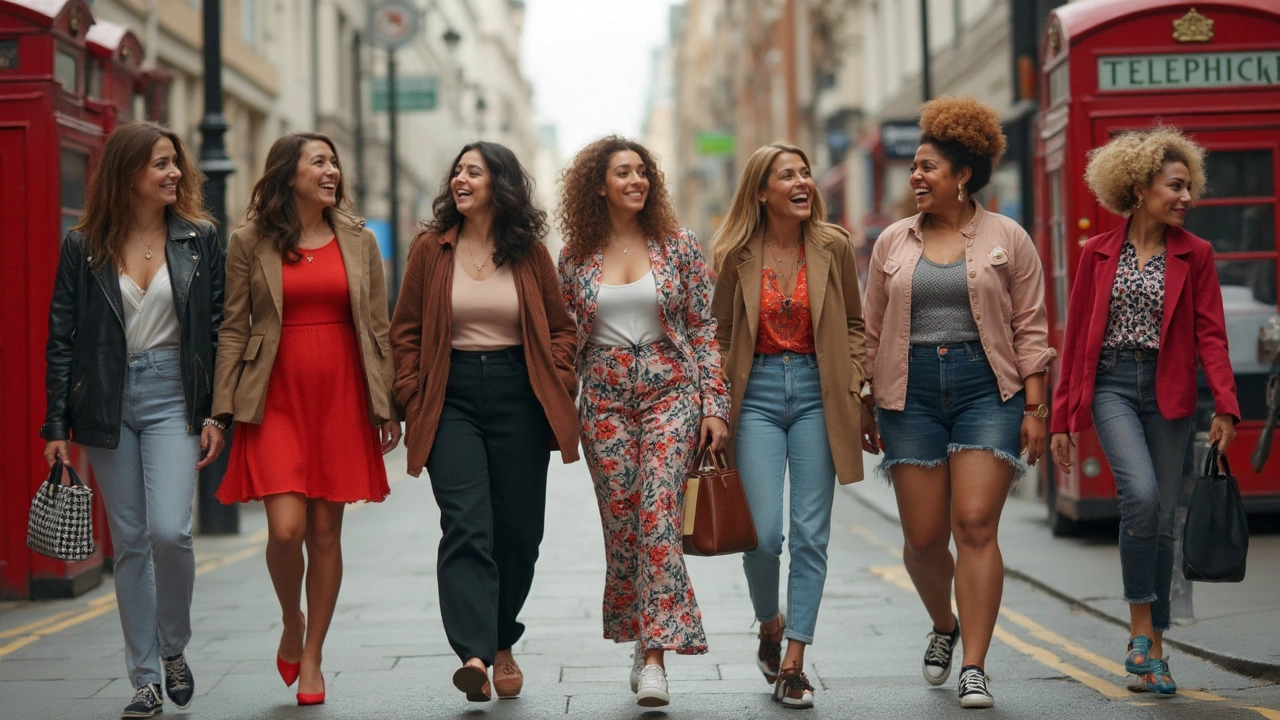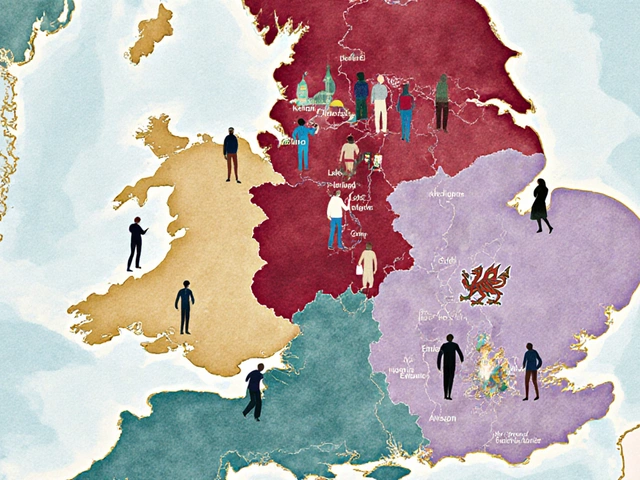Ask ten guys what weight they find most attractive, and you’ll probably get ten totally different answers. Spoiler: there isn’t one magic number. But here’s something a lot of people miss—guys usually notice how comfortable you are in your own skin before they obsess over a number on a scale.
If you’re sifting through your closet, worried about whether dresses make you look a certain way, you’re not alone. But science (yep, there have been actual studies asking men what catches their eye) shows that both shape and confidence matter way more than size. Sure, some trends come and go, like everyone suddenly wanting a super-curvy look or loving athletic builds. Still, almost every survey finds that fit, healthy, and happy beats a precise weight measurement every time.
So next time you shop, focus less on squeezing into a made-up size and more on clothes that hug your shape in a way that feels good. The right jeans or a well-fitted tee can transform your whole look, and honestly, people notice that way more than whether you lost another pound. Style choices, not your weight, do most of the heavy lifting when it comes to attraction.
- The Myth of the 'Perfect Weight'
- What Research Really Says
- How Style Can Change Everything
- Confidence Over the Scale
The Myth of the 'Perfect Weight'
If you think there’s a perfect number everyone should hit on the scale, let’s clear that up right now: it’s just not real. Magazines, TV, and even social media have all pushed the idea of a single 'ideal' size, but that’s simply made up. For decades, what’s seen as the most attractive weight has bounced all over the place—from the waif-thin look of the 90s to today’s curvier champions on your Instagram feed.
Doctors, too, have been shifting away from picking the 'right' weight using things like BMI. Why? BMI doesn’t tell you how fit or healthy someone actually is—it just spits out a number based on height and weight. The Centers for Disease Control and Prevention (CDC) has said for years that health is about way more than the scale: things like strength, energy, and even how much you move every day matter way more. If you look up famous studies, like the National Health and Nutrition Examination Survey, you’ll see they keep finding that people of all shapes get attention, not just folks in a certain weight class.
Here’s another thing: ask any group of guys, and you’ll see they don’t all agree on the 'most attractive weight.' What really sticks out is a healthy look paired with confidence. The world’s not running on one-size-fits-all anymore. So really, don’t sweat trying to copy a number someone else chose.
- If you’re trying to pick your clothes based on what men might like, remember: trends change fast, but feeling good in what you wear sticks around way longer.
- Focus on your personal style and the clothes that flatter you—not squeezing into someone else’s mold.
- Forget crash diets or obsessing over the latest fitness challenges online—a smart fit and a relaxed attitude will almost always beat chasing an imaginary perfect weight.
The bottom line: there’s no single answer to 'what weight do men find most attractive?' Tastes change, and trying to chase the media’s idea of perfection isn’t just tiring—it really doesn’t help. What people actually notice is whether you own your look and feel comfortable. That’s what catches the eye, every time.
What Research Really Says
Let’s be honest, magazines and social media love to claim they know exactly what body shape men drool over. But when it comes to facts, things get a whole lot more interesting. Actual research tosses out the idea that there’s just one “perfect” weight, and it turns out, guys rate attractiveness with a mix of shape, health, and personality in mind.
A well-known 2012 study published in the Journal of Obesity surveyed hundreds of men, showing them images ranging across different body weights and shapes. Most chose women in the healthy BMI range (about 18.5—24.9) as the most attractive—not the super-skinny runway look or an ultra-muscular build. But this isn’t set in stone. A follow-up survey in 2019 found that guys from different cultures and age groups often prefer different looks. Younger men were a bit more influenced by the media, while older men leaned toward women who seemed happy and confident in their bodies.
Some surveys even asked guys to pick what matters more: dress size or confidence. Over 70% said confidence won, hands down. The men were also shown line drawings with different waist-to-hip ratios, a common trick in studies. On average, they picked a waist-to-hip ratio around 0.7 as most attractive—a shape that shows some curve but comes in all kinds of sizes.
| Study | Key Finding | Year |
|---|---|---|
| Journal of Obesity survey | Most preferred healthy BMI (18.5–24.9) | 2012 |
| Waist-to-Hip Ratio Research | 0.7 waist/hip ratio rated most attractive | Multiple |
| Confidence vs. Dress Size poll | 70% picked confidence over clothing size | 2018 |
What’s the main takeaway? Most men don’t memorize a number on the scale or care about a specific clothing size. They notice energy, attractive weight for them means someone who looks healthy, put-together, and sure of themselves. Your personality, posture, and the way clothes fit you do more for your look than some secret “ideal” number ever could.

How Style Can Change Everything
Ever noticed how two people with the same body size can look totally different just because of what they're wearing? That's not a fluke. The right clothes don’t just make you look good—they actually shift how people see you. Researchers at North Carolina State University found that clothing, especially fit and color, can totally change how attractive we seem to others, and it matters more than the number on your scale.
Forget old advice about hiding or shrinking your body. Instead, focus on these game-changing style moves:
- Fit is everything. Baggy clothes make you look sloppy, but skin-tight stuff isn’t the answer either. Instead, look for pieces that skim—not squeeze or swamp—your natural shape.
- Balance your silhouette. If you’re wearing something close-fitting on the bottom, go for a looser top and vice versa. It keeps your proportions on point.
- Go high-waisted. High-rise jeans, skirts, or pants create instant curves (even if you don’t have dramatic hips) and make legs look longer.
- Vertical details, like seams and stripes, help you look taller and give the illusion of a leaner frame.
- Don’t skip tailoring. If you like the way a shirt or dress looks but it’s a bit off, a five-minute tailoring job works wonders.
Check out this quick breakdown from a 2024 survey on what men notice first when meeting someone:
| First Impression Factor | Percentage of Men Surveyed |
|---|---|
| Confidence/Body Language | 42% |
| Clothing Style/Fit | 29% |
| Face/Smile | 20% |
| Specific Body Shape or Size | 9% |
So what does this mean for you? Instead of stressing out over your exact weight, focus on how you put yourself together. A sharp jacket, tailored jeans, or even a fun pair of sneakers can do more for your attractive weight than trying to shrink or bulk up. Make your style work for you, and you’ll instantly turn more heads—no scale required.
Confidence Over the Scale
Ever met someone who just lights up a room, no matter what they’re wearing or what the scale says? That’s confidence at work. Surveys from places like Psychology Today show that men are far more likely to call someone attractive if they look confident and comfortable, compared to someone who’s just trying to fit into a certain weight bracket. Real talk: obsession with numbers doesn’t pull in positive attention—authenticity does.
So, what can you actually do to boost your confidence, especially while picking your attractive weight and style? Knowing that beauty standards aren’t universal can help. For instance, this Paris guide shows how French men often value elegance, charm, and individuality over fixed body ideals. It’s a reminder that what’s seen as attractive isn’t set in stone—it shifts with culture and context.
Take these quick facts for proof. A 2023 study by YouGov polled over 2,000 adults and found that 76% of men rated self-assurance as more attractive than any physical feature, including body shape. On top of that, fashion research from Leeds University found that people who felt good in their clothes (regardless of size) got more compliments and positive reactions than those worrying about their numbers.
So, what can you actually do to boost your confidence, especially while picking your attractive weight and style?
- Pick clothes that make you feel proud, not just trendy—pay attention to cuts, colors, and fabrics that suit your personality, not what someone else says is ‘in’.
- Practice good posture. Standing tall and walking with purpose isn’t only healthier for your back—it also makes your whole presence more appealing.
- Start small: Try adding one bold piece to your outfit (think statement earrings or a fun jacket) and watch how your attitude shifts.
- Spend a few minutes each morning identifying one thing you like about your look. Sounds corny, but people who do this end up carrying themselves differently throughout the day.
| Factor | % Rated as 'Very Important' |
|---|---|
| Confidence/Self-Assurance | 76% |
| Sense of Style | 41% |
| Smile | 38% |
| Body Shape | 29% |
| Specific Weight | 11% |
See? The number on the scale barely even makes a blip for most guys. Walking tall, liking what you wear, and ditching the body-shaming voice in your head will take you way further than losing a couple pounds ever could. It’s not just feel-good advice—guys actually pay attention to how you carry yourself way more than they do your dress size.





